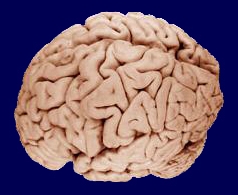Paranormal Psychology (Parapsychology) & The Human Mind: Tricks Of The Mind

Related Hubs
- What Is NLP? (Neuro Linguistic Programming)
- NLP: Generating Rapport
- NLP: Representational Systems
- What Is Hypnosis & How Does It Work?
- Psychological & Mental Abuse
- Relieve Depression Without Medication
- Psychological Murder: Inflicted Suicide
- Arachnophobia: How To Overcome Your Fear Of Spiders
- How The 2012 Apocalypse Affected One Man
- Inside The Mind Of A Murderer
- HPD: Histrionic Personality Disorder - The Drama Queen
- BPD: Borderline Personality Disorder - The Emotional Abuser
- Logical Explanations For The Seemingly Paranormal
- Mnemonics: Memory Techniques - Develop A Super Power Memory
- The Fundamental Law Of Attraction
- Social Psychology: Cognitive Dissonance - I Don't Believe It!
- What Is Remote Viewing & How Does It Work?
Mind Tricks
How many times have you heard the saying "It's just your mind playing tricks on you"?
These 'mind tricks' are down to the fact that the perception of our experiences can often become distorted in some way, or interpreted wrongly, usually due to our own individual set of beliefs; beliefs which are empowered by our past first hand experiences.
The human mind is an enormously powerful instrument which we use within our daily lives yet the sheer power of the human mind is hugely underestimated which then places further limitations on our capacity for understanding.
The human mind can cause us to experience seemingly paranormal events by 'playing tricks on us' thereby causing us to experience such phenomena as negative hallucinations, which can leave us looking around all over the place for something only to find that it was right there in the very first place we looked.
Indeed when placed in unusual circumstances, such as staying in a haunted pub or castle for a night, our own beliefs and expectations inevitably lead us into experiencing events as paranormal that would, in any other circumstance, seem completely normal. When placed in these situations our perception of normal every day dormant sounds such as background creaking, becomes stronger and more pronounced and we then represent them to ourselves in a much stronger and more powerful way, leading ourselves into our own delusionary experience.
When we begin to question our beliefs about the seemingly paranormal event that occurs, we then lead ourselves further down the garden path. We may experience the feeling of being touched on the back of our head or neck, for example. This is actually a completely normal physiological response.
When questioning our beliefs we may also experience what appears to be the sound of a voice which can sometimes result in asking someone "did you say something?" only to have them look at you confused and say "no!"
Bearing in mind that human speech patterns are made up of a series of several smaller sounds, click and pops which all exist outside of human speech itself, it's easy to perceive small collections of certain sequential clicks and pops as speech. This causes us to mis-perceive external sounds and is actually very common.
We spend most of our lives on autopilot remaining in our own little bubbles, our unique individual experience of the world. We continue to listen to our own interior dialogue without even being aware of it and subconsciously following the suggestions that it throws at us.
We each have our own frames of mind. What exactly is a frame of mind?
A frame of mind is the way in which you represent a certain situation or memory to yourself. In NLP (Neuro Linguistic Programming) there is a technique called 're-framing' which helps you view these representations from a different angle in order to help you see the bigger picture.
Our conscious mind and our subconscious mind are constantly feeding each other with information. The information fed into your conscious throughout each day is stored in your subconscious mind, which then analyzes and processes it and stores it away in the necessary places. This information is then fed back into our conscious mind.
For example, you smoke every day for several years. At first, you are consciously making the choice for yourself and you are aware of exactly what you are doing. Over time, performing this routinely is constantly embedding it stronger and stronger in your subconscious. After so many days, months or years you find yourself automatically lighting up a cigarette without consciously thinking about it. It has become a habit because you have repeatedly embedded this into your subconscious and it is now working of its own accord.
Starting a new job, particularly in a production or manufacturing environment can cause a similar effect. Working in production can be an extremely repetetive job and at first, you may find yourself lying down to go to sleep in the nights to find the constant pattern of what you have been doing throughout the day starting to run constantly through your mind seemingly of it's own accord.
Everything we experience is translated by our brain then turned into a metaphorical representation and stored away. The way we represent these experiences to ourselves determines the way that we emotionally react to them.
We also view, analyze and sort these representations every night whilst we are asleep in the form of dreams. When we are awake our dreams seem to make no sense or have no recognizable meaning. This is because they are strictly metaphorical. Whilst under hypnosis it is possible to remain awake and to fully understand what these representations actually mean.
This is a natural function carried out by our subconscious. We don't have to think about doing it, we do it naturally because our subconscious mind is pre-programmed to do so; In the same way that it is pre-programmed to keep us breathing, our heart pumping and control our natural bodily functions.
We also have brainwaves which can be measured by frequency, similar to a radio signals, which can be measured in Hertz (Hz). These brainwaves alter when we experience different levels of communication - alpha, beta, delta and theta. We experience different psychological experiences when our minds are working at different frequencies.
One proposed theory suggests that we perceive the world as three dimensional because we live in the third dimension and our brainwaves are pre-tuned to this dimension. Could it be possible to tune our brainwave frequency into another dimension and experience some kind of parallel world running in unison with ours?
With all the fascinating aspects of the human brain that are being discovered psychology is now moving into a stage where it may be overtaking science in helping us to understand the world that we live in, or at least the world that we perceive and experience.
By Sparkster








